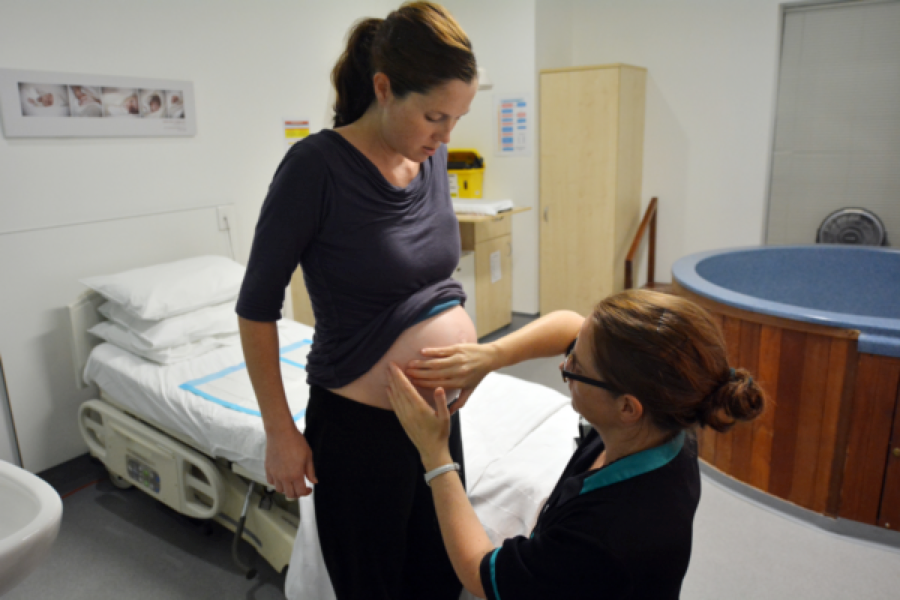
CLINICAL PRACTICE
The Role of Certified Nurse Midwives in Promoting Maternal and Infant Health
-
 EveryNurse Staff
EveryNurse Staff
- Last Updated: 10/03/2023

Maternal and infant health are critical aspects of healthcare, with a significant impact on the well-being of individuals and society as a whole. Certified Nurse Midwives (CNMs) play a vital role in promoting maternal and infant health through their specialized knowledge and skills. In this article, we will explore the contributions of CNMs, the importance of maternal and infant health, and how CNMs improve the health outcomes of both mothers and infants.
Exploring the Vital Contributions of Certified Nurse Midwives
Certified Nurse Midwives are advanced practice registered nurses who specialize in providing comprehensive healthcare services to women throughout their lifespan, with a particular focus on pregnancy, childbirth, and postpartum care.
Definition and Scope of Practice
CNMs are healthcare professionals who are trained to provide a wide range of services related to pregnancy and childbirth. They conduct prenatal visits, monitor the health of both mother and baby, provide support during labor and delivery, and offer postpartum care. Additionally, CNMs are qualified to provide family planning services, gynecological care, and general healthcare services to women of all ages.
Education and Certification Requirements
Becoming a CNM requires rigorous education and training. CNMs must hold a graduate degree in nursing, specifically in midwifery. They complete an accredited program that combines classroom education and clinical rotations to develop their skills and knowledge. Upon completion of their education, CNMs must pass a national certification examination to obtain their certification.
Differences Between Certified Nurse Midwives and Other Healthcare Providers
It’s important to note that CNMs differ from other healthcare providers involved in maternity care. Unlike obstetricians or gynecologists, CNMs approach pregnancy and childbirth from a perspective that emphasizes the natural physiological processes while ensuring the safety and well-being of the mother and baby.
CNMs are well-equipped to handle low-risk pregnancies and provide individualized care, but they also collaborate with other healthcare professionals to ensure comprehensive care for high-risk pregnancies or complications.
The Importance of Maternal and Infant Health
Maternal and infant health are crucial for the well-being of individuals and society as a whole. Healthy mothers and babies contribute to thriving families and communities. Let’s explore why maternal and infant health indicators are essential and their impact on society.
Key Maternal Health Indicators
Key Infant Health Indicators
Infant health indicators include infant mortality rate, rates of preterm birth, low birth weight, and neonatal complications. These indicators reflect the health and well-being of newborns and their ability to thrive. By focusing on improving infant health indicators, we can reduce infant mortality, promote healthy development, and give every baby the best start in life.
The Impact of Maternal and Infant Health on Society
Investing in maternal and infant health has far-reaching effects on society. Healthy mothers are more likely to engage in the workforce, provide nurturing care for their children, and contribute to their communities. Healthy infants have a higher chance of reaching their full potential, which positively influences society’s overall well-being and economic productivity.
How Certified Nurse Midwives Improve Maternal Health
Certified Nurse Midwives play a crucial role in promoting maternal health through their specialized care and support during the entire pregnancy journey.
Prenatal Care and Education
CNMs provide comprehensive prenatal care, including regular check-ups, health assessments, and screenings. They monitor the health of both the mother and baby, identify potential risks, and provide guidance on maintaining a healthy pregnancy. CNMs offer education on nutrition, exercise, and healthy lifestyle choices, empowering women to make informed decisions about their health and well-being.
Labor and Delivery Support
During labor and delivery, CNMs offer continuous support to women, ensuring a safe and positive birthing experience. They provide emotional support, pain management techniques, and guidance on labor progress. CNMs advocate for women’s choices in childbirth, including the use of non-pharmacological methods, while being prepared to address any complications that may arise.
Postpartum Care and Follow-Up
CNMs continue to care for women during the postpartum period, ensuring a smooth transition into motherhood. They provide postpartum check-ups, assess the physical and emotional well-being of the mother, and offer support with breastfeeding and newborn care. CNMs also address any concerns or challenges that may arise and provide appropriate referrals when needed.
How Certified Nurse Midwives Improve Infant Health
Certified Nurse Midwives play a significant role in promoting the health and well-being of infants through their specialized care and support.
Newborn Assessments and Care
CNMs perform thorough assessments of newborns immediately after birth to ensure their well-being. They conduct physical examinations, evaluate vital signs, and provide initial care and interventions as necessary. CNMs monitor the baby’s growth and development, provide guidance on newborn care, and address any concerns or complications that may arise.
Breastfeeding Support and Education
CNMs are advocates for breastfeeding and provide valuable support and education to new mothers. They assist with establishing breastfeeding, offer guidance on proper latch and positioning, and address common breastfeeding challenges. CNMs understand the importance of breastfeeding for the health and well-being of infants and provide ongoing support to ensure successful breastfeeding journeys.
Early Childhood Development and Well-Child Visits
CNMs continue to be involved in the care of infants as they grow. They provide well-child visits, monitor developmental milestones, conduct routine screenings, and offer guidance on early childhood nutrition and healthcare. CNMs work in collaboration with pediatric healthcare providers to ensure comprehensive care for infants and support their healthy development.
Conclusion
Certified Nurse Midwives play a vital role in promoting the health and well-being of both mothers and infants. Through their specialized knowledge, skills, and compassionate care, CNMs contribute to improving maternal and infant health outcomes. By providing comprehensive prenatal care, labor and delivery support, postpartum care, and ongoing infant care, CNMs empower women and families to achieve positive birth experiences and promote optimal health for both mothers and babies. Their dedication and expertise make a significant difference in the lives of individuals, families, and communities.


















